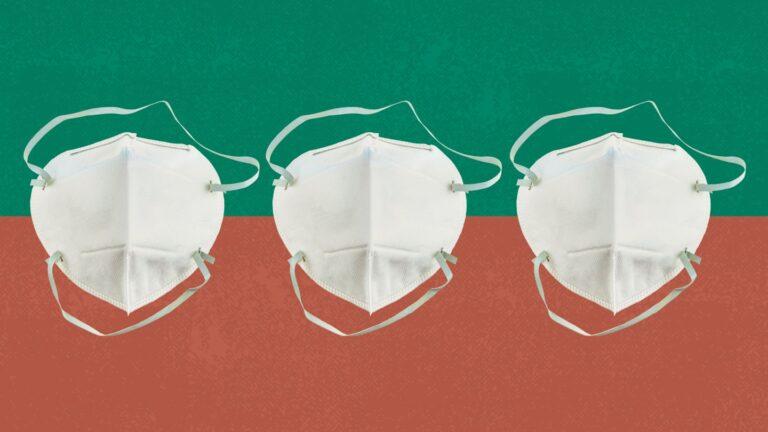Some of the best natural remedies for insect bites might already be in your kitchen cupboard or bathroom cabinet – here’s what the experts have to say about them…
The arrival of summer brings with it plenty to look forward to – from lighter evenings and days spent with the paddling pool out to family holidays and beach trips. But as we get into the summer months, you might find yourself wondering why there are so many flying ants and how to get rid of ants as the warmer climate causes these bugs to swarm, and with them comes uncomfortable insect bites. And it’s not just ants – mosquitos and horseflies often cause trouble at this time of year too.
Dr Johannes Uys, a GP at Broadgate General Practice told us: “The effectiveness of natural remedies for insect bites compared to over-the-counter medication varies from person to person. Natural remedies may not work as quickly as over-the-counter medication, but they can be just as effective in the long run for many. If you wish to avoid using chemicals in medicine, I consider such remedies a good option.” With this in mind, we’ve spoken to Dr Uys and other medical experts to put together this list of the best natural remedies for insect bites.
Dr. Johannes Uys is a General Practitioner (GP) working at Broadgate General Practice in London. Dr. Uys qualified in 2000 from the University of Stellenbosch in South Africa, before undertaking training and gaining experience in the fields of General Practice, A & E and Intensive Care Units. He moved to the UK and worked in the private healthcare sector since 2005, before working in a clinic in Central London. He then established Broadgate General Practice in London, where he currently works.
10 natural remedies for insect bites
1. Honey
Honey has been used for hundreds of years as a natural remedy for a sore throat, for burns and many other ailments. This is because the sweet food has antibacterial and anti-inflammatory properties, with a study in the Clinical, Cosmetic and Investigational Dermatology Journal finding that honey has the potential to improve clinical outcomes for patients with wound and skin infections.
In addition, several of the experts we spoke to praised the ability of honey to treat insect bites. Carolina Goncalves, superintendent pharmacist at Pharmica, explained that as well as its antimicrobial properties, “honey’s sticky consistency forms a protective barrier over the bite, shielding it from further irritation while promoting healing.”
Carolina is an experienced pharmacist having worked as a community pharmacist for more than five years. She is originally from Portugal where she graduated with a six-year Pharmacy degree in 2009. She is also a specialised travel pharmacist, and has extensive knowledge of travel vaccines. Carolina’s whole approach to pharmacy revolves around patient-centered care.
To try this remedy, apply a small drop of honey to the bite and leave it on until you next wash. The natural sugars in honey can draw out moisture from the affected area, reducing swelling and inflammation and providing relief from itching.
2. Aloe Vera
Aloe Vera is another natural remedy that has many uses, and a review of clinical trials published in the Iranian Journal of Medical Sciences found that this plant can be used to prevent skin ulcers and to treat burn wounds, postoperative wounds, cracked nipples, genital herpes, psoriasis, and chronic wounds including pressure ulcers.
Carolina explains, “Aloe vera contains compounds called polysaccharides that help reduce inflammation by inhibiting the release of histamines, which are responsible for itching and swelling. The gel also forms a protective layer over the bite, keeping it moisturised and preventing further irritation.” She added, “Aloe vera’s moisturising properties support the healing process by promoting tissue repair and reducing the risk of infection.”
Pure aloe vera is best for this, and it can be bought from most health stores, drugstores or pharmacies.
3. Baking soda
Baking soda is a great at-home treatment for insect bites, because chances are you already have it in your kitchen cupboard.
Jana Abelovska, Superintendent Pharmacist at Click Pharmacy, says: “Baking soda is one of the most effective ways to reduce the itching and stinging sensation left when we’re bitten by bugs such as mosquitoes. This is because it is made up of mild alkaline compounds that help to break down the irritants in bug saliva that cause this reaction.” She adds, “Baking soda also helps to neutralise the skin’s pH balance and can even be used to aid in fighting off infections.”
Jana Abelovska is a Superintendent Pharmacist at Click Pharmacy. She completed her Masters in Pharmacy degree from Comenius University Bratislava in 2018. As part of her studies, Jana conducted research on colorectal carcinoma and the problem of chemoresistance in therapy. Following her graduation Jana had been working as a pharmacist in a community setup before joining Click Pharmacy in 2019.
To try this remedy, mix one teaspoon of baking soda to three teaspoons of water and apply the mixture directly to insect bites. However, Jana warns that regular use of baking soda is not good for the skin, so this treatment should only be used for particularly painful bites.
4. Basil
Basil leaves have natural anti-inflammatory and antimicrobial properties, making them a useful natural remedy for treating insect bites.
Carolina told us, “The essential oils in basil, such as eugenol and linalool, contribute to its therapeutic effects. Eugenol acts as a mild anaesthetic, providing relief from pain and itching. Linalool, on the other hand, helps reduce inflammation and swelling associated with insect bites.”
This is supported by a study in the International Journal of Food Properties, which found that the properties of basil seed gum include anti-microbial activity and anti-inflammatory effects.
Crushing basil leaves and applying them directly to the affected area can help extract the beneficial compounds found in the plant and therefore help soothe inflammation or reduce the itching associated with insect bites.
5. Witch hazel
Witch hazel is a plant-derived natural remedy for insect bites, and it’s commonly used for other skin conditions too. You can buy witch hazel both in pharmacies and at health food or grocery stores.
Carolina explained to us, “Witch hazel acts as a natural astringent, constricting blood vessels and reducing inflammation. This property helps relieve itching, pain, and swelling caused by insect bites.” She added, “It also has mild antiseptic properties, which can help prevent secondary infections and promote healing. Applying witch hazel with a cotton pad or compress can provide soothing relief and aid in the recovery of insect bites.”
6. Tea bags
Research in the Pharmacognosy Reviews journal found that the antioxidant compounds in tea called catechins can repair skin damage, therefore meaning green and black tea can be used as a natural remedy for insect bites.
Dr Uys told us, “To use this remedy, soak a tea bag in cold water for a few minutes before applying it to the insect bite for 10 to 15 minutes.”
7. Vinegar
Apple cider vinegar has a reputation as one of the best natural remedies for all kinds of ailments, and it can treat insect bites too.
Dr Uys explains, “Vinegar has antiseptic and anti-inflammatory properties that can help reduce swelling and itching from insect bites. To use vinegar, apply a small amount to a cotton ball and dab the bite.”
If you need more relief, try soaking a washcloth in cold water and vinegar, and then applying it to the bite. You could even add two cups of vinegar to a tepid bath and soak in it if you have many bites all over your body.
8. Tea tree
Tea tree oil is renowned for its antimicrobial, anti-inflammatory and soothing properties, making it an effective natural remedy for insect bites. This is because its antibacterial and antifungal properties help cleanse the skin and prevent infection.
In addition, tea tree oil’s anti-inflammatory properties reduce the redness, swelling, and itching associated with bites. However, Carolina warns, “It’s important to dilute tea tree oil with a carrier oil (such as coconut or olive oil) before applying it to the skin to avoid potential irritation.”
9. Peppermint oil
A study in the Clinical, Cosmetic and Investigational Dermatology journal found that peppermint oil can relieve itching from long-term causes like diabetes and liver conditions, which suggests it is also effective at providing relief from insect bites too.
Pharmacist Jana Abelovska told us: “Peppermint oil can be used to reduce itchiness and swelling left by insect bites because of the oil’s menthol content, which acts as an anti-inflammatory. Simply apply a drop of peppermint oil onto the affected area and let it soak into the bite.”
Again, you could try adding this natural remedy to a bath and soaking in it too. However, you might want to test the oil on a different area of skin before trying it on your bite, to make sure you don’t have any allergies.
10. Oatmeal
Colloidal oats are known to provide relief to irritated and inflamed skin, and a study in the Journal of Drugs in Dermatology found that an oat bath is an effective way to reduce the itching and inflammation that comes with burns and rashes
Jana says: “Oatmeal is another great solution for itchiness, due to its emollient properties, meaning it holds moisture against the skin, helping to soothe it. Oatmeal is also believed to have anti-inflammatory properties, helping to reduce swelling in insect bites.”
She advises applying an oatmeal paste to the bite by mixing oatmeal with an equal amount of water and leaving it on the skin for 10 minutes before wiping it away.
How to stop bites from itching
Carolina told us, “It’s important not to scratch the bite, as this can worsen the itch and increase the risk of infection. If necessary, cover the bite with a clean bandage or apply an adhesive bandage to prevent scratching.”
How to prevent bites from swelling up
Similarly to addressing itching, placing a cold compress or ice pack wrapped in a thin cloth can help reduce swelling by constricting blood vessels.
Carolina advises, “If the bite is on a limb, raising it above the heart level can promote better blood circulation and lymphatic drainage, reducing swelling. Apply a topical cream containing ingredients like hydrocortisone or a nonsteroidal anti-inflammatory drug (NSAID) to the bite to help reduce swelling and inflammation.”
She adds, “Remember to clean the bite regularly with mild soap and water to prevent infection but avoid using harsh chemicals or irritants that can further aggravate the swelling. If the symptoms worsen, or you experience severe allergic reactions or signs of infection, it’s important to seek medical attention for proper evaluation and treatment.”
If you’re looking for more natural remedies suitable for the whole family this summer, we’ve asked the experts for their top hay fever remedies, travel sickness remedies, heat rash remedies and sunburn remedies too.
This content was originally published here.




















